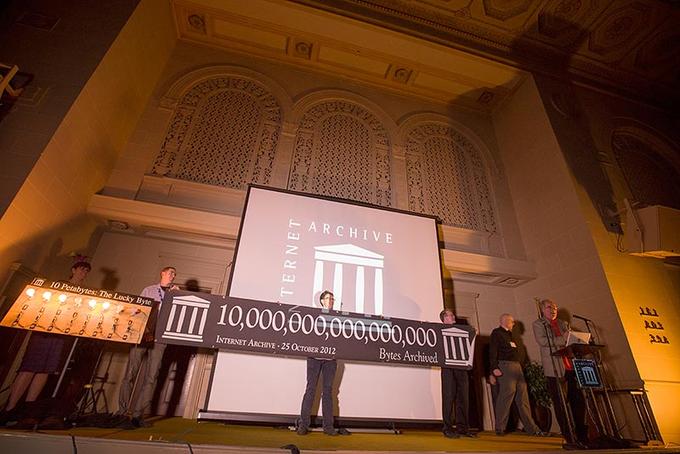Editor’s Note: This entry is currently being researched for additional information. Please request editorship to improve the quality of this article.
About
The Internet Archive is a digital library and archival site dedicated to permanent documentation of and free public access to a wide variety of digital artifacts, ranging rom websites and music to videos and nearly three million books registered under public domain.
History
The Internet Archive[1] was founded in 1996 by American computer engineer and Internet activist Brewster Kahle[2], who also co-founded the web crawling service Alexa Internet around the same time. It initially began as Kahle’s personal project to archive the World Wide Web, Netnews Bulletin Board System and other publicly available software and webpages, but by late 1999, its scope had been expanded to include other worthy archive collections like the Prelinger Archives and the NASA Images Archive. Kahle’s collection was largely kept private on digital tape throughout the 1990s, only allowing researchers and scientists to access the database on special occasions. Despite its lack of public access, the Internet Archives was met by press coverage from several U.S. news publications upon its launch, including the New York Times, Washington Post, Wired Magazine and National Public Radio (NPR).
The database eventually became available for public access on the fifth anniversary of the project in 2001 with the launch of The Wayback Machine[3], a digital time capsule that allows its users to browse multiple versions of web pages archived over time. According to Kahle[4], he was inspired to create the Machine after visting the offices of now-defunct search engine service Alta Vista and witnessing the company’s ambitious plan to store and index everything that was on the web. Throughout the 2000s, the Internet Archive continued to expand its collection by merging pre-existing databases as well as building new ones.
On January 18th, 2012, the Internet Archives blacked out its website for twelve hours in protest of the controversial U.S. Internet bills Stop Online Piracy Act and the PROTECT IP Act, similar to many other resource websites and databases like Wikipedia. In mid-October 2012, the project reached an important milestone[5] of 10 petabytes (10,000,000,000,000,000 bytes) worth of digital materials in preservation, including millions of digital books, music, movies and webpages.
Features
The Internet Archives is mainly comprised of its free online services Wayback Machine and Archive-It, in addition to a number of specialized media collections that have been acquired over time, most notably the Prelinger Archives, NASA Image Archives, Open Library and Live Music Archive. [this section is currently being researched]
The Wayback Machine
The Wayback Machine is the Internet Archive’s “three-dimensional index” service that allows its user to search, browse and access snapshots of the World Wide Web archived through its database over time. Since its launch in 2001, millions of websites and their associated data and media have been archived by the service, which can be used to learn more about what previous versions of certain websites used to look like, to grab source code that have disappeared from websites or to visit websites that no longer exist on the web. Often considered a crucial academic research tool in studying the history of the Internet, its popularity has also led to the synonymous usage of the terms “Wayback Machine” and “Internet Archive” in some online communities.
Archive-It
Archive-It is a web archiving service that enables individuals and organizations to harvest, catalog and preserve specialized collectons of digital media content in the archive format. All of Archive-It partners’ collectons are also made publicly available with full-text search and some of them may be periodically indexed into the Internet Archive’s general archive. As of mid-2011, the service had reached more than 180 partner institutions in 44 U.S. states and 14 countries with over 2.7 billion URLs and 1,534 public collections.
Open Library
The Open Library is a free, open-source software project which can be used to create a web-based database for every book ever published and archived. It holds at least 23 million catalog records of books and approximately 1.6 million fully-readable and downloadable books in the public domain.
Traffic
According to its FAQ page and Alexa, the Internet Archives receives approximately 2.5 million daily unique visits and currently stands at the 278th place in U.S. rank and 222nd place in Global Rank.
External References
[1] Internet Archive – Digital Library of Free Books, Music, Movies and Wayback Machine
[2] Wikipedia – Internet Archive
[3] Internet Archive – Wayback Machine
[4] Wikipedia – Wayback Machine
[5] Internet Archive Blogs – 10,000,000,000,000,000 bytes archived!
[6] Internet Archive – Open Library
[7] Internet Archive – Archive It





